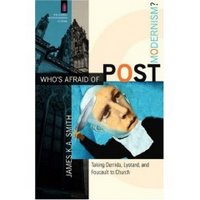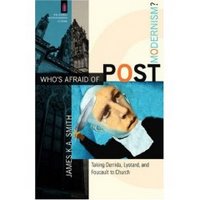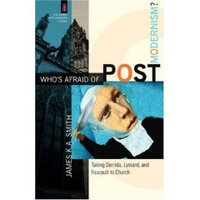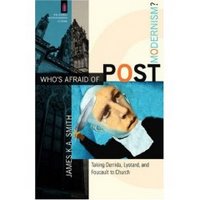Thursday, November 30, 2006
For Amberly
Yeah...we know how to shake it!
A Walk
Tuesday, November 28, 2006
Random Poetical Thoughts (Yeah, I made that word up.)
Writing to break the mold
Writing to tame the tongue
Writing to move someone
It is for these reasons that I write
Thankful for my life
Thankful for my wife
Thankful for my mom and dad
Thankful for the friends I have
It is for these reasons that I am thankful
Ground breaking
Soul shaping
Breath taking
The future is grounded in the breaking forth of the past while
My soul is shaped through the exhaling of your breath
It’s a beautiful process to be sure
Monday, November 27, 2006
What American Accent do you have?
| What American accent do you have? Your Result: The Midland "You have a Midland accent" is just another way of saying "you don't have an accent." You probably are from the Midland (Pennsylvania, southern Ohio, southern Indiana, southern Illinois, and Missouri) but then for all we know you could be from Florida or Charleston or one of those big southern cities like Atlanta or Dallas. You have a good voice for TV and radio. | |
| The South | |
| Philadelphia | |
| The Inland North | |
| The Northeast | |
| The West | |
| Boston | |
| North Central | |
| What American accent do you have? Take More Quizzes | |
I think this has to be a bit wrong. Either that or living in Florida and now in Kentucky has really screwed me up. Who knows. That's probably it.
HT - Matthew
Question of the Week
Sunday, November 26, 2006
Whose Afraid of Postmodernism? Part 5

Smith’s cry to return to one holy, apostolic, catholic, church is a good one. By removing the chains of modern epistemology, the church can find grounds to reunite through confession and ecclesial practices.
Smith’s critique of some churches current use of postmodernity is very telling. Smith writes, “There remains a certain notion that the church needs to “get with” postmodernity such that postmodern culture sets an agenda for the church, rather than postmodernity being the catalyst for the church to recover its own authentic mission.” By treating postmodernity as another evangelism tool then we have simply co-opt postmodernity to fit our modern compartmentalized needs. As Smith says it should be a catalyst in which the church can work to form and shape culture not the other way around.
Wednesday, November 22, 2006
Whose Afraid of Postmodernism? Part 4

Smith’s primary thought is the last sentence in the entire chapter. He concludes, “Conceiving of the church as a disciplinary society aimed at forming human beings to reflect the image of Christ, we will offer an alternative society to the hollow formations of late-modern culture.” Smith’s dance with Foucault is not what I would consider a waltz, perhaps a cha cha, but certainly not an elegant one. We must be careful not to be sucked into Foucault’s classic liberalism of the autonomous individual. Smith bluntly says, “…freedom is an idol of the contemporary church, and we will only properly resist Foucault’s liberalism if we give up our own.” I believe Smith gives a fair critique of the so called “emergent churches” in there embracing of the autonomous individualism of their projects. The tight rope between institution and independence is very narrow.
“Power is knowledge.” Foucault seems to be right in assessing that all power is not evil. We as Christians attest to the greatest power that we in no way would consider evil. It is the use of this power and the ultimate “telos”, as Smith says, that deems the rightness or wrongness of the use of the power. Disciplines have and will continue to be strong and proper ways that we can “…glorify God and enjoy him forever.”
Tuesday, November 21, 2006
Question of the Week
Sunday, November 19, 2006
Published Poem
Saturday, November 18, 2006
It's Here
Friday, November 17, 2006
Whose Afraid of Postmodernism? Part 3

THIS IS MY FAVORITE OF ALL 5 CHAPTERS.
Chapter Three
Lyotard “…defines metanarratives as universal discourses of legitimation that mask their own particularity.” Put another way, “metanarratives deny their narrative ground even as they proceed on it as a basis.” In short, postmodernity and the push against metanarritives is simply a rally cry to being authentic. It is a plea for Enlightenment to recognize itself as the story that it is.
With this definition of metanarrative we see that Scripture, when correctly defined, does not fall into this category. As stated in the previous chapter, we must embrace the reality that we are telling one of many interpretations to life’s stories. That being said, we still are capable to view our story as truth.
Ultimately for Lyotard the rejection of metanarratives is not a rejection of “…grand stories in terms of scope or in the sense of epic claims, but rather an unveiling of the fact that all knowledge is rooted in some narrative or myth.”
Our purpose and call then as Christians is not to present propositional truth claims but to present our incarnational, narrative lives. We tell and retell our stories not only orally but by also living them out. Thus, “…postmodernism signals the recovery of narrative knowledge and should entail a more robust, unapologetic proclamation of the story of God in Christ.”
Wednesday, November 15, 2006
Whose Afraid of Postmodernism? Part 2

This particular chapter is Smith’s engagement with Derrida and the concept of text and/or context. Derrida’s heralded phrase, “There is nothing outside the text,” sets the framework for the entire discussion. Derrida is also famous for the concept of deconstruction. Unlike many interpretations this word was not originally meant to be used in a negative sense but rather in a positive sense. Deconstruction was always meant to be constructive and positive.
Smith tells us that for Derrida “language is the necessary filter through which the world comes to us.” Our entire world is wrapped up in interpretation. For modernists this can be a very scary thought. Truth, for a modernist, is objective. If something can not be shown to be objectively true then it is written off as false. Smith further goes on to explain that the gospel cannot hold up to this objective truth. To which the modernist would say then the gospel should not be held as truth. It becomes one story among many stories, one interpretation among many interpretations. This may be the case. It does not, however, make the gospel any less true. Smith writes, “…the fact that something is a matter of interpretation does not mean that an interpretation cannot be true or a good interpretation.” He then goes on to suggest a thought experiment about two separate interpretations of the one account of Christ’s crucifixion.
We, as Christians, have nothing to fear from the plurality of the world. If we claim that our story is the truth then it will stand up to the test.
Monday, November 13, 2006
Whose Afraid of Postmodernism? Part 1

Smith begins the chapter with the most pertinent question that one should ask when engaging this particular topic, that question being, “What is postmodernism?” I think that he is right to assert that the definition is somewhat a “nebulous concept-a slippery beast eluding our understanding.” I think this is partially due to the fact that we are dealing with a topic, concept or whatever you would like to call it, that no one has dealt with before. This is truly new ground.
Smith proposes two things to try to help us better formulate the concept. He first advocates a “return to the philosophy itself to understand postmodernity.” By “the philosophy”, Smith is referring to the popular French philosophers who are credited for the beginning processes of postmodernity. Three of these philosophers are to be engaged throughout the entirety of the book. They are Jacques Derrida, Jean-Francois Lyotard, and Michel Foucault.
Specifically, Smith intends to show how the church can “attempt to make off with postmodern loot for the sake of the kingdom.” By doing so, Smith will use Derrida’s insight to question “the centrality of Scripture for mediating our understanding of the world as a whole and the roles of community in the interpretation of Scripture.” Smith will use Lyotard’s insight to “recover the narrative character of Christian faith…and the confessional nature of our narrative and the way in which we find ourselves in a world of competing narratives.” Smith will use Foucault to push us to realize the “cultural power of formation and discipline, and hence the necessity of the church to enact counterformation by counterdisciplines.”
Question of the Week
Wednesday, November 08, 2006
Quotes by Vincent Donovan
"The salvation of one's own soul, or self-sanctification, or self-perfection, or self-fulfillment may well be the goal of Buddhism or Greek philosophy or modern psychology. But it is not the goal of Christianity."
"When I mentioned again the obligation of spreading the gospel to those who have not heard it, the leader said he would be glad to do so himself, if I would pay him a salary for doing it."
Brilliant
Monday, November 06, 2006
Question of the Week
Thursday, November 02, 2006
The In-Famous couches
A Day of Mourning
Wednesday, November 01, 2006
Theological Reflection
A Peculiar People by Rodney Clapp and Life Together by Dietrich Bonhoeffer have inspired me to shape and stretch my thinking of how the church is called to interact with the world and how we are to live and be God's people. Keeping all of that in mind, I would like to focus on two ways in which the church can and should respond to our present day cultural situation. First, I will flesh out the idea of the doctrine of the trinity being central to all that we, as a church, are and aspire to be. Second, I will propose that the concept of God as eschatological unbound future is a hopeful and redeeming way to employ evangelism and to encourage proper community habits for the church.
If the premodern world was most concerned with ontology and the modern world was most concerned with epistemology, then I think it is fair to say that the postmodern world's main concern is hermeneutics. The question then becomes, through which lens do we choose to view life? I assert that, as Christians, the doctrine of the trinity has and will continue to play a central role in the formation of our communities and the manner in which we live our lives. Continuing to view the God relationship through the mode and economy of the trinity, I am confident, will lead us in the right direction. This seems to be the case regardless of any contextual situation.
The trinity of the Father, Son, and Holy Spirit has and always will be the best example of living community. It is the responsibility of the church to model this loving relationship to one another and to the entire world. In the past the western world has too easily bought into the concept of God as ultimate oneness. This view of God has hindered the church by fueling the already prevailing lifestyles of consumerism and individualistic desires. As Rodney Clapp states, "Pastors and other church leaders face enormous pressures to concentrate on ministry as marketing and psychotherapy-both tendencies that concentrate the practice of faith on the individual." We need to recapture the correct view of relationship. I do not believe that God is only concerned with people groups. On the contrary He is very much concerned for us as individuals; unfortunately the pendulum of individualism has swung too far in one direction. The correct view consists of God, me, and others, as opposed to the incorrect view of me and God only. Thus Clapp rightly asserts, "...the gospel of Jesus Christ is about the salvation not of monadic, isolated individuals but of the world, of the entire groaning creation." (Romans 8:22)
Dietrich Bonhoeffer's Life Together oozes with aspirations of Trinitarian life. The central theme of the book begins not with community as an ideal, but as a divine reality. Just as the trinity consistently functions within this divine reality, so to should our communities aspire to live into this same reality. Bonhoeffer states, "A community which cannot bear and cannot survive such a crisis, which insists upon keeping illusion when it should be shattered, permanently loses in that moment the promise of Christian community." It is not our wishes or desires that form and shape our communities but rather the reality of God working in our lives in relation to one another. In the common day vernacular of our youth, "keeping it real" becomes our primary concern. Authentic Christian community simply is.
To speak of God as the eschatological future is not to immediately think of the popular dispensationalist view or even the Left Behind series. It is not a doomsday story of us versus them mentality, but rather a message of incorporation and an invitation to participate with God in the coming of His kingdom. Clapp says, "The Jewish and Christian hope is not for the flight of the soul, at death, to an invisible world of eternal reality. It is instead eschatological, looking not so much 'above' in space as 'ahead' in time, when God's new heaven and new earth will be realized in their fullness."
This story of the coming eschaton, when included with the overall scope of the gospel, is perhaps the most hopeful and tantalizing narrative present. To give a tangible example of this method of evangelism, helping others to encounter and embrace a more intimate relationship with God, I will refer to an ongoing conversation that I was privileged to have with a youth I served in my previous position as a youth minister.
This particular young lady had a view of God that I presume many Christians and non Christians alike would refer to when speaking of God. This view was of a vengeful and wrath filled god prepared to punish and pierce with lightning bolts at the first sign of any wrongdoing. Referring to the trinity and God as eschatological future was very helpful in reshaping and reorienting her position. I presented her with this scenario: Imagine the Holy Spirit is behind you, the Son is beside you and the Father is in front of you. Now, the Holy Spirit spurs us in the right direction while Jesus, the Son, walks directly beside us empathizing with our every mood and posture all the while encouraging us to press forward. The Father also encourages us to move forward but from the position of the unbound future. The idea of the unbound future invites us to enter into true partnership with God.
We are no longer left with the simple mechanistic world view of causation or action and reaction. Viewing God as the cosmic pool player who has made the initial break of the game, and is now sitting back to watch the balls crash into each other, is no longer our only option. The eschatological view allows for the option of God to break into history, our world, and even our very lives. John Milbank correctly states that eschatology, "...involves the claim that the 'interruption' of history by Christ and his bride, the Church, is the most fundamental of events, interpreting all other events. And it is most especially a social event, able to interpret other social formations, because it compares them with its own new social practice." Our social practices as the church should be in right relationship with this ever changing, dynamic and dialectical relationship of now but not yet.
Thus, Clapp is right to assert, "So what God has created in the church is a dynamic, ongoing form of life, a way of being human, which is to say an arena of social interaction that uniquely dwells in relationship with the one and true God and witnesses to a day when all creation will be in proper, fitting and true relation with that same God." Both the doctrine of the trinity and the concept of God as eschatological unbound future are vital to the prosperity and vigor of the church.


